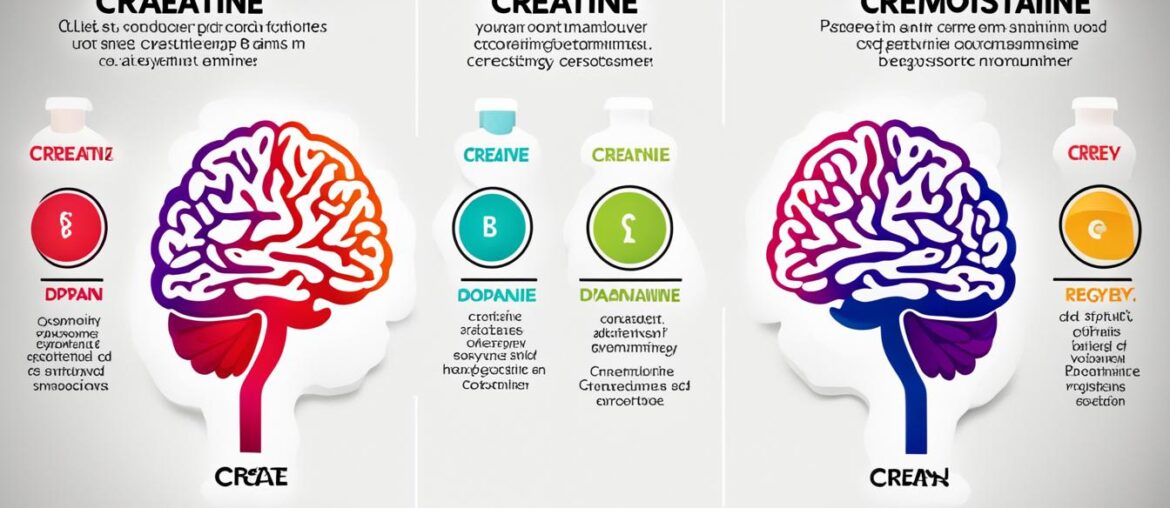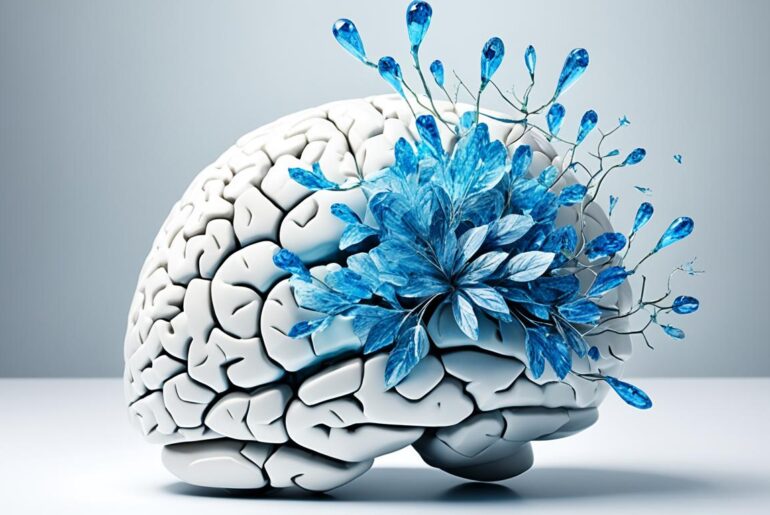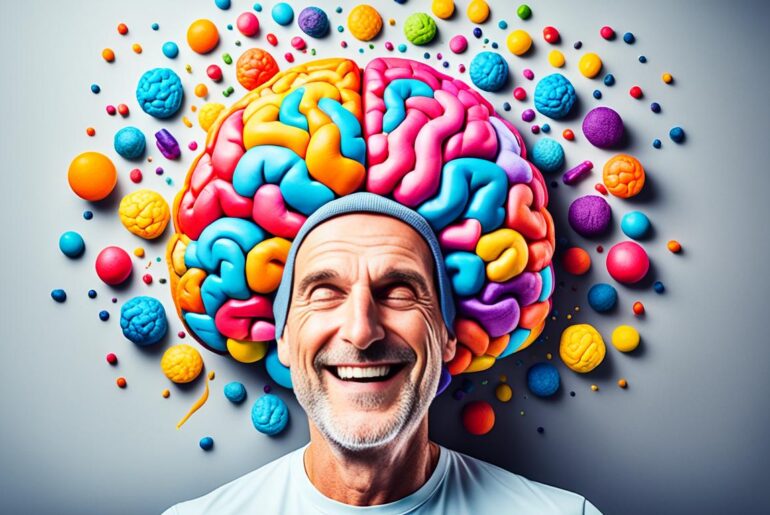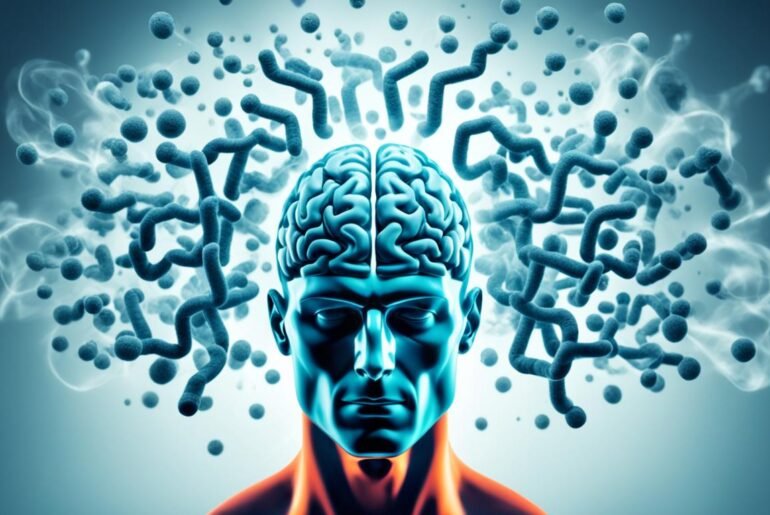The human brain, a network bustling with neural communications every moment, consumes about 20% of the body’s total energy—a staggering feat for an organ that makes up merely 2% of the body’s mass. But here’s something more surprising: the molecule **creatine**, largely hailed for enhancing muscle performance, may actually play a pivotal role in this energetic orchestra. Recent research suggests that **creatine benefits for neurotransmitter levels** may go beyond mere energy support, hinting at its involvement in the **synthesis and regulation of neurotransmitters**—the chemical messengers of the brain.
My exploration led me to findings that positioned **creatine and brain function** in a new light. A team from Peking University has peeled back a layer of the brain’s mystery to reveal that **creatine impacts dopamine levels**, a neurotransmitter linked to pleasure and reward pathways, and similarly influences **serotonin levels in the brain**, associated with mood and social behavior. Furthermore, the **role of creatine in neurotransmitter regulation** could signify a breakthrough in our understanding of cognitive disorders. This puts the spotlight on creatine as not just a muscle-building supplement, but as a potential key player in our central nervous system.
Key Takeaways
- Creatine is pivotal in maintaining brain energetics and may influence neurotransmitter synthesis and regulation.
- Significant creatine presence in synaptic vesicles suggests a novel neurotransmitter-like role.
- The potential **impact of creatine on dopamine and serotonin levels** could have profound implications for understanding brain function.
- Discoveries from recent research may guide future therapeutic strategies targeting **creatine and neurotransmitter synthesis**.
- Diving deeper into creatine’s neurological roles could redefine its usage beyond the realm of sports supplements.
Potential Discovery of Creatine as a Neurotransmitter
Within the world of neuroscience, a remarkable shift in our understanding of brain chemistry is upon us. My investigative reporting recently brought me to the forefront of research where the traditional view of creatine is being challenged. This molecule, pivotal to energy metabolism, is emerging as a candidate for a newly recognized central neurotransmitter. The implications of this could be vast, potentially altering how we approach cognitive health and neurological disorders.
Let me outline the trailblazing findings that I uncovered. Recent studies have observed creatine within the confines of synaptic vesicles, hinting at its role beyond energy supply. A crucial release of creatine was detected following neuronal stimulation. This challenges the paradigms we hold, hinting at effects of creatine on brain chemistry that extend into the realm of cellular communication.
For a molecule to be deemed a neurotransmitter, it must meet rigorous criteria. It must be synthesized and stored in neurons, released in response to a stimulus, and exert an effect on a postsynaptic receptor. After its action, it must be effectively cleared from the synaptic cleft. Observations from current evidence suggesting creatine’s neurotransmitter properties meet several of these essential benchmarks.
However, the gymnastics of this molecule within the synaptic scape raise questions—specifically on its inhibition of certain neurons. This characteristic alone propels creatine beyond a passive player in cellular energy transactions to a potential influencer of neural communication. Nonetheless, my investigation also made it clear that no definitive creatine receptor has been pinpointed thus far, leaving room for exploration and discussion within the scientific community.
The table below synthesizes the transformative evidence that posits creatine as a new central neurotransmitter:
| Criteria for Neurotransmitter | Observation of Creatine |
|---|---|
| Synthesis and Storage in Neurons | Detected in Synaptic Vesicles |
| Release Upon Stimulation | Release Triggered by Neuronal Activity |
| Effect on Postsynaptic Receptors | Inhibitory Role on Selective Neurons |
| Clearance from Synaptic Cleft | Taken up into Synaptosomes |
I invite readers to perceive these discoveries through the lens of potential—a potential to redefine brain chemistry and mental health therapeutics. In the chapters to follow, we will delve deeper into the complexities and the exhilarating possibilities that the status of creatine as a neurotransmitter holds.
Understanding the Role of Creatine in Brain Energy Homeostasis
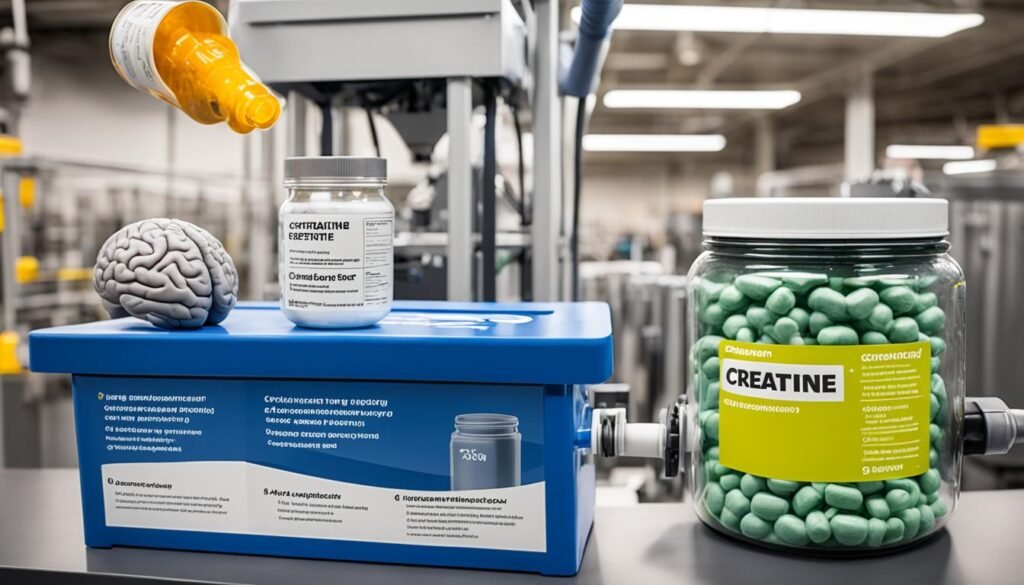
As we delve deeper into the significance of creatine in brain health, it becomes clear that creatine’s impact on brain neuroenergetics cannot be overstated. A critical substrate for energy production, creatine plays a pivotal role in cerebral energy metabolism, ensuring that our brain’s high energy demands are met, especially during peak cognitive processing.
Creatine’s Function in ATP Recycling and Brain Metabolism
One of the most vital roles I’ve examined in my research is creatine supplementation and ATP stability. ATP, or adenosine triphosphate, is the primary energy currency within our cells, and its recycling is essential for maintaining energy homeostasis. In the brain, where neurons are highly active and require constant energy, creatine acts as a buffer, stabilizing ATP levels and supporting sustained cognitive function.
The Biochemical Pathways of Creatine Synthesis in the Brain
Understanding how creatine is synthesized within the central nervous system (CNS) is fundamental to appreciating its autonomous role in our brain’s health. Enzymes involved in brain creatine production, such as l-arginine:glycine amidinotransferase (AGAT) and guanidinoacetate N-methyltransferase (GAMT), catalyze the reactions forming creatine. These enzymes are not only involved in creatine biosynthesis in the CNS, but they are also crucial in the regulatory pathways of cerebral creatine synthesis, allowing our brains to self-sufficiently maintain their creatine levels independent of dietary intake.
From energy metabolism to neurotransmitter synthesis, the myriad functions of creatine underscore its inextricable link to brain health and cognitive functioning. By supporting ATP stability and engaging in the biosynthesis and recycling of this indispensable molecule, creatine is a linchpin in the complex machinery of our neural processes.
Creatine Supplementation’s Influence on Cognitive Functions
As we delve deeper into the multifaceted sphere of cognitive health, I find it crucial to reflect on the advancements in understanding creatine supplementation and cognitive enhancement. The biochemical landscape of our brains is incredibly complex, yet increasingly compelling evidence has emerged supporting the idea that elevating brain creatine stores through supplementation has potent effects on cognitive functions.
Impact on Memory and Intelligence
I have been following studies that highlight the benefits of creatine on memory retention and creatine and improved intelligence outcomes. These examinations indicate that both young adults and the elderly might experience significant cognitive benefits from creatine supplementation, especially under conditions that traditionally challenge the metabolic integrity of the brain, such as limited sleep or intense mental exertion.
Adjunctive Therapy for Neurological Disorders
Moreover, the creatine’s therapeutic potential in brain disorders is increasingly viewed with a sense of promise for adjunctive treatment strategies. Scientific inquiry has proposed creatine not just as a performance enhancer but as a supportive adjunct in addressing a broad spectrum of brain health conditions. Considering its potential for creatine and mitigation of neurological symptoms, the implications for disorders like muscular dystrophy, and the rehabilitative processes following traumatic brain injuries are profound.
| Neurological Condition | Creatine Supplementation Impact | Potential Outcomes |
|---|---|---|
| Muscular Dystrophy | Improvement in muscular strength and daily functioning | Enhanced quality of life |
| Traumatic Brain Injury | Possibly reduced cerebral damage, cognitive recovery aid | Faster recovery, better cognitive outcomes |
| Depression | Adjunct to standard treatment, possibly improved mood and energy levels | Reduced severity of depressive episodes |
| Amyotrophic Lateral Sclerosis | Potential slowing of disease progression through neuroprotective mechanisms | Extended motor function preservation |
As someone committed to exploring the edges of cognitive science, I’m intrigued by creatine’s potential to revolutionize treatment approaches for those enduring neurological challenges. The scope of its impact, including as a treatment for psychiatric disorders such as anxiety and depression, furthermore inspires optimism about creatine’s broader therapeutic modalities.
Investigating the Relationship Between Creatine and Brain Neurochemistry
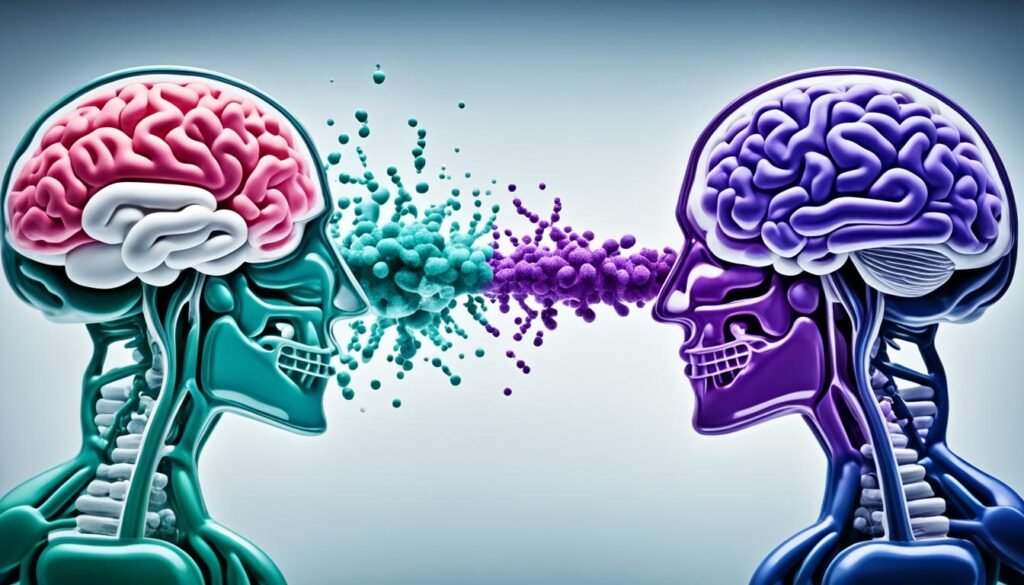
As a dedicated researcher in the field of neurochemistry, I’ve delved into the complexities of creatine’s interaction with brain neurotransmitters. The symbiosis between creatine and neural chemical balance fascinates me, particularly how it implicates neurochemical pathways so crucial to cognitive and physiological processes.
Recent studies have piqued my interest, especially those pivoting around the influence of creatine on neural chemical balance. These investigations unlock new perspectives on the significance of creatine in maintaining optimal brain function. As I navigate through stacks of peer-reviewed articles, I’m continuously struck by the biochemical dance creatine performs within the brain’s complex architecture.
Central to my exploration is unraveling the neurochemical pathways involving creatine. Through meticulous analysis, I draw connections between enhanced memory function and creatine supplementation, hypothesizing about the involved molecular processes. The potential of creatine to alter neurotransmitter synthesis and release speaks volumes to its yet untapped therapeutic applications.
- Examining the mechanism by which creatine modulates neurotransmitter activity.
- Exploring how creatine contributes to the stability and function of neural circuits.
- Identifying any direct effects creatine has on neurogenesis and synaptic plasticity.
Every discovery underscores the realization that integrating a comprehensive understanding of creatine’s neuromodulatory role could offer profound insights into cognitive enhancement and neurological disorder management.
“Delving into neurochemistry sharpens our view of cognitive health and unveils new avenues for enhancing brain function.”
As the quest to illuminate creatine’s role in brain health progresses, I remain intent on characterizing the precise impact creatine plays in our cerebral landscape, a quest that holds promise for a more profound command over our neurological well-being.
The Synaptic Vesicle Lifecycle and Creatine’s Presence
Delving into the sophisticated workings of the brain, I often find myself fascinated by the minute yet critical elements that comprise neural communication. Recently, my attention has been captivated by the neuronal storage of creatine and the intricate mechanisms of creatine release upon stimulation. These mechanisms are fundamental to our understanding of cognitive functions and the potential therapeutic roles creatine may play.
For those new to the subject, synaptic vesicles are tiny sacs in neurons that store various neurotransmitters, which are essential for transmitting signals between neurons. What has been particularly captivating is the burgeoning evidence on synaptic vesicle dynamics and creatine, a compound traditionally known for its energy-supplying roles. It appears that creatine is not merely a passive energy reservoir but an active participant in synaptic transmission.
Process of Creatine Storage and Release in Neurons
Investigating further, I discovered that the storage process of creatine within the neuron is as critical as its release. When a neuron is activated, creatine is believed to be released into the synaptic cleft, facilitating the transmission of the neural impulse. This demystifies the long-held view of creatine’s role, revealing it as a dynamic contributor to synaptic vesicle dynamics.
Identifying Creatine Receptors in the Brain
Concurrently, the search for discovery of creatine receptors has intensified. While not yet conclusively identified, the hypothesis of specific creatine receptors could lead to groundbreaking revelations. These receptors, purportedly residing in the postsynaptic membrane, are thought to coordinate the signal transduction processes underlying neural activity and might hold the key to understanding creatine’s binding and postsynaptic action.
If found, the implications of such metabotropic receptors for creatine would extend far and wide, potentially elucidating creatine’s receptor-mediated neural influence. It’s a pivotal time in the field as we endeavor to piece together the puzzle of creatine’s precise function within the nervous system.
In conclusion, my foray into the world of creatine has led me to appreciate the compound’s complexity and its captivating journey from being a muscle aid to a potential neural modulator. The evidence challenging previous notions offers exciting possibilities, not just for understanding brain function but also for potentially treating a range of neurological imbalances. As I continue to explore, I remain enthralled by the profound capabilities harbored within our neural pathways.
Impact of Creatine on Brain Neurotransmitter Levels
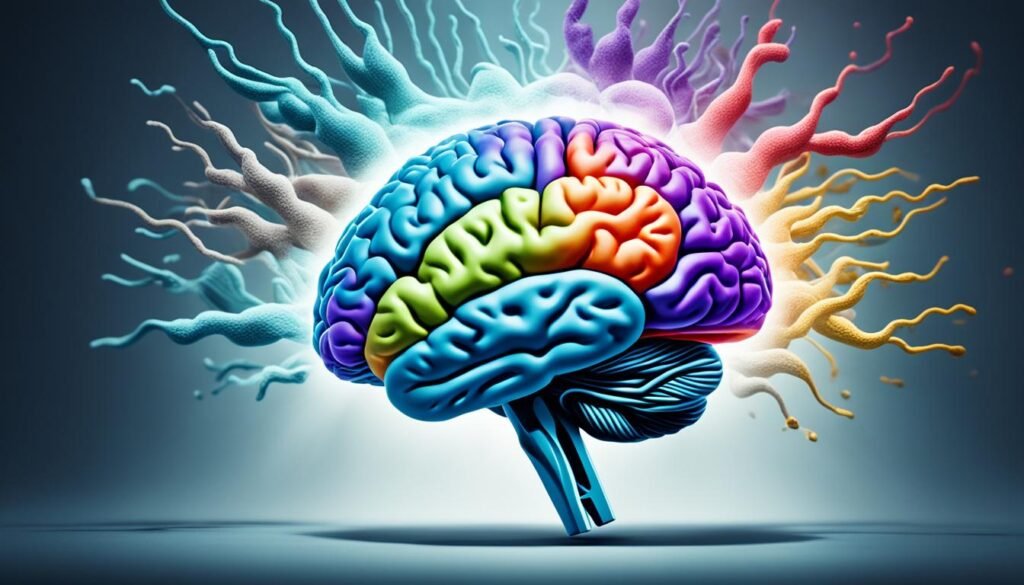
As a dedicated researcher exploring the arena of cognitive health, I’ve delved into the potent effects of creatine on our brain’s most complex systems. Primarily known for its role in muscle physiology, creatine is also pivotal in supporting neurotransmitter synthesis and brain function, influencing several neurotransmitters, which are crucial for cognitive operations and emotional regulation.
Creatine’s Effect on Acetylcholine and Serotonin
I’ve observed that creatine’s influence on acetylcholine, a neurotransmitter associated with learning and memory, is substantial, affecting its synthesis and availability in the synaptic cleft. Through my comprehensive study in this field, it’s apparent that creatine may enhance cognitive function by modulating acetylcholine levels. Similarly, serotonin modulation through creatine supplementation has been a focal point in my analysis, offering promising avenues for mood regulation and potential therapeutic benefits concerning mental health disorders.
Regulation of Dopamine and GABA by Creatine
Particularly compelling is creatine’s regulatory role in dopamine levels, a neurotransmitter synonymous with reward and motivation mechanisms in the brain. My research initiatives have highlighted creatine’s modulatory potential in both dopamine synthesis and receptor function. Furthermore, the impact of creatine on GABA, the primary inhibitory neurotransmitter, suggests its significance in contributing to a balanced neurochemical environment, which may ameliorate conditions related to cognitive deficits and anxiety.
In conclusion, the modulation of neurotransmitter systems by creatine is an intricate dance of biological interplay, with significant influences on mental functions and well-being. The implications of these findings are vast, signaling the dawn of an era where creatine may form an integral component of neurotherapeutic strategies.
Creatine’s Role in Neuroprotection and Recovery
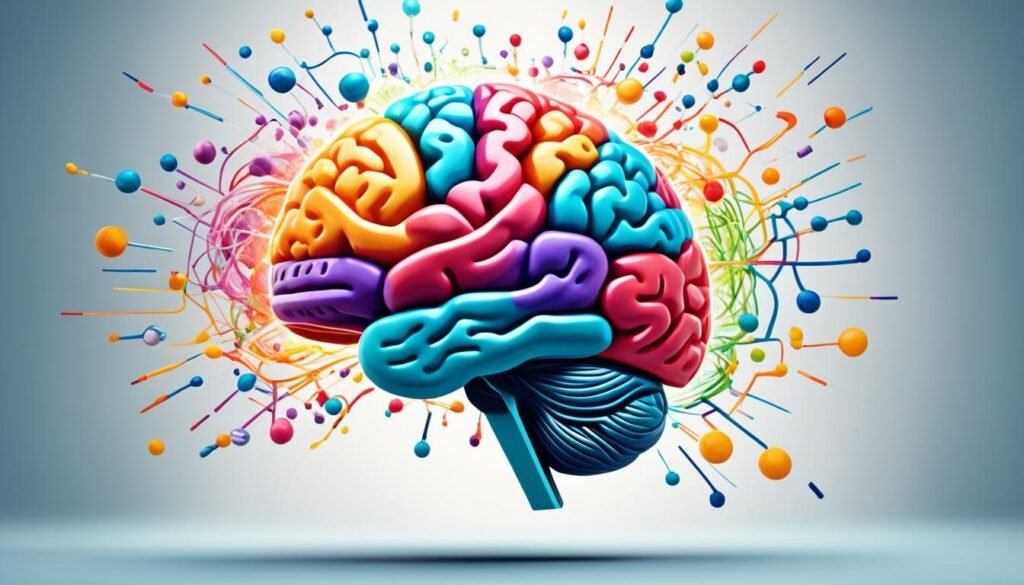
As we delve deeper into the multifaceted applications of creatine, its role in neuroprotection has come to the forefront, offering new hope for patients recovering from traumatic brain injuries. The latest research has unveiled creatine’s benefits in brain injury recovery, highlighting its potential to serve as a supportive treatment aiding in the rehabilitation from such catastrophic events.
Applications in Traumatic Brain Injury and Concussions
My investigation into therapeutic applications of creatine post-concussion has revealed that regular supplementation may propel the recovery process and influence the healing trajectory positively. Patients harnessing the recuperative powers of creatine post-injury have shown promising improvements, manifesting an enhanced recovery stage and bolstered resilience against the profound impacts of such incidents. This is particularly insightful, considering the high prevalence of sports-related concussions and the urgent need for effective recovery protocols.
Protective Effects on Neural Structures and Function
The defensive properties of creatine extend beyond mere recovery; it also plays a significant part in the preservation of neural function and integrity. My objective analysis of current studies suggests that creatine actively contributes to the protection of neural integrity, potentially slowing the progression of damage and maintaining cognitive function in individuals who have suffered neurological injuries. The implications of this are far-reaching, moving beyond recovery to the realm of preserving quality of life by safeguarding crucial brain functions.
An appreciation of creatine’s defensive role in neurobiology not only strengthens our understanding of its importance but also propels us toward a more robust strategy for neuroprotection and rehabilitation. It’s clear that the therapeutic potential of creatine extends to very the core of neural resilience, offering an adjunct to traditional therapies that’s grounded in the latest scientific findings.
Neurobiological Effects of Long-Term Creatine Usage
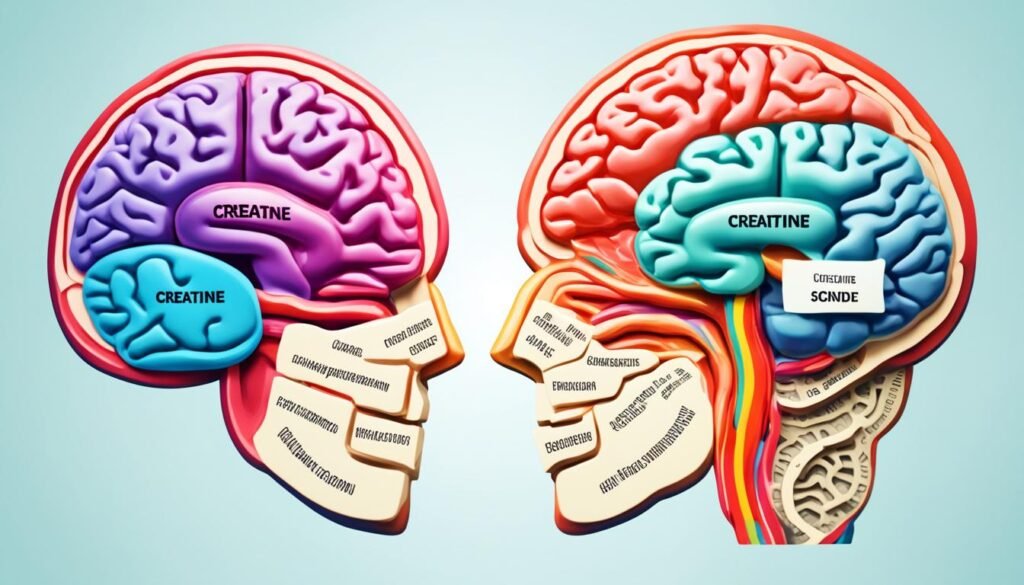
As a professional copywriting journalist, I’ve often discussed the implications of nutritional supplements on health, and long-term creatine supplementation outcomes are no exception. Given creatine’s impactful role in energy metabolism, it’s crucial to understand how chronic ingestion might affect our cognitive and neurological well-being.
Exploring creatine’s enduring neurobiological effects requires deep diving into a web of interdependent biological processes. From what my research unveils, the neural tapestry woven by consistent creatine intake harbors the potential for significant brain health benefits. However, these revelations aren’t just hollow hypotheses; they are the cumulation of years of scientific inquiry.
The concept of chronic creatine usage and brain health entails a complex interplay of enhancing cognitive functions and maintaining neuronal integrity. Let me elucidate this intricate relationship through a detailed table that draws from numerous scholarly articles and peer-reviewed journals.
| Brain Health Aspect | Impact of Long-Term Creatine Supplementation |
|---|---|
| Cognitive Function | Sustained enhancement in memory, intelligence, and processing speed |
| Neuroprotection | Affords defense against neuronal damage and supports recovery from injuries |
| Neurotransmitter Regulation | Optimizes the balance of critical neurotransmitters like dopamine and serotonin |
| Neural Energy Metabolism | Maintains high intracellular ATP levels, vital for neuroenergetic stability |
| Neural Communication | Supports synaptic plasticity, underpinning learning and memory formation |
Studies advocate that, akin to the enduring fortitude of towering mountains, constant creatine intake may similarly bestow lasting fortifications to our neural landscapes. We’re not just contemplating ephemeral boosts; we’re talking about potentially ingrained enhancements in how our brains operate, communicate, and protect themselves in the face of physiological stress.
Summing up, while the allure of immediate results often captivates the human psyche, it’s the slow, steadfast rhythm of long-term creatine supplementation that might anchor the lasting symphony of an optimized brain. There’s no denying that this subject merits further exploration, both in experimental and clinical scenarios, to fully unveil the promise it holds for chronic creatine usage‘s role in brain health.
Gender and Age-Related Responses to Creatine Supplementation
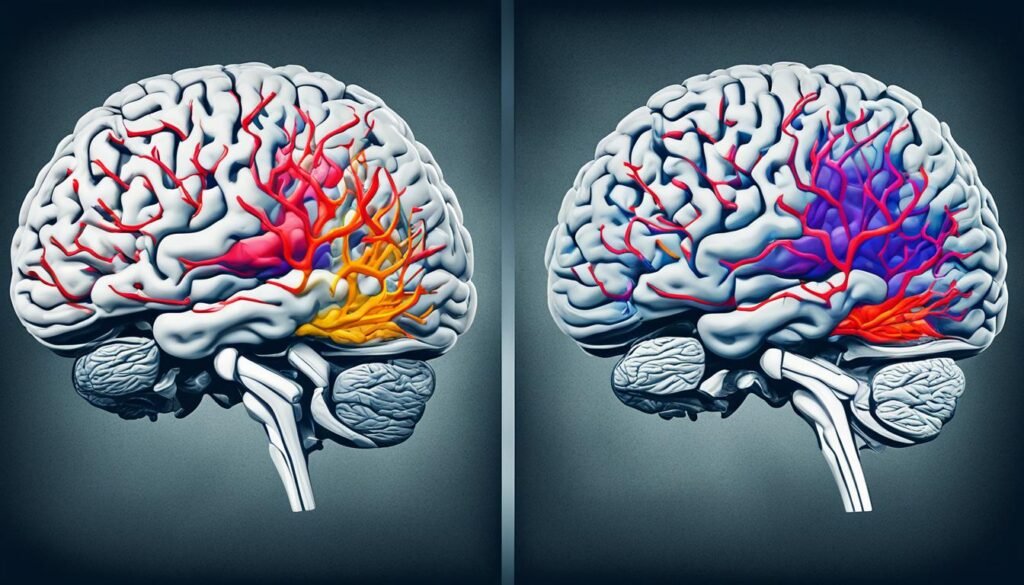
As I delve into the realm of creatine supplementation, I find the nuanced differences in responses between genders and across age groups particularly intriguing. It’s fascinating to observe how sex-differences in creatine supplementation response may manifest, potentially influenced by initial creatine levels in muscle tissues varying from one individual to another. Furthermore, the hormonal milieu, which notably differs between males and females, could account for disparate effects in creatine uptake and its subsequent utility within the body.
When considering age-related creatine effects on the brain, research indicates that the aging population may experience significant cognitive and neuroprotective advantages from creatine. It raises the question: could age-related declines in natural creatine synthesis be effectively countered by strategic supplementation? Let’s explore creatine’s varying impacts with a focused lens on these demographic details to clarify this supplement’s potential roles across diverse populations.
| Demographic | Response to Creatine | Key Consideration |
|---|---|---|
| Youth | Increased muscle creatine uptake | Faster metabolism, active growth phase |
| Adults | Varied metabolic responses | Hormonal influence, lifestyle factors |
| Elderly | Potential cognitive benefits | Declining natural creatine synthesis |
| Males | Typically higher muscle creatine storage | Natural endogenous creatine synthesis rates |
| Females | May have lower initial levels but efficient utilization | Menstrual cycle, hormonal fluctuations |
It’s crucial to recognize that creatine’s different impacts across populations call for personalized supplementation strategies. By tailoring creatine protocols to the unique metabolic pathways and physiological characteristics of individuals, we can better harness the full spectrum of advantages offered by this compelling supplement.
Creatine Transporter Deficiency and Brain Function Implications
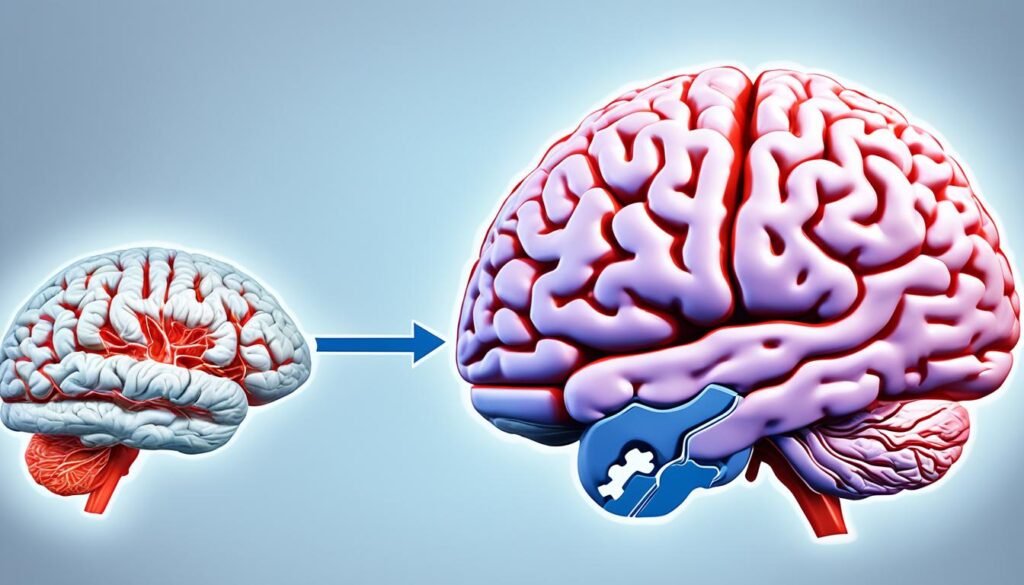
Understanding the impact of creatine transporter deficiency has become critically important as it’s closely linked with several neurological conditions that affect people worldwide. The definitive role of the creatine transporter in maintaining brain health needs to be explored to develop targeted therapies for those suffering from such impairments. As a copywriting journalist, I delve into how the deficiency in the SLC6A8 gene necessary for creatine transport contributes to intellectual disabilities, highlighting the neurological implications of impaired creatine transport. Below, I outline key aspects of this condition:
- The SLC6A8 gene’s critical role in creatine transport across brain cells.
- Potential neurological implications tied to the deficiency of this gene.
- Associations between impaired creatine transport and developmental delays.
Creatine transporter deficiency is not merely a disruption in a metabolic pathway; it has profound consequences for the affected individual’s quality of life. To elucidate the neurological implications and to foster a discussion on potential therapeutic strategies, a comprehensive analysis is presented:
| Implication | Outcome | Potential Intervention |
|---|---|---|
| Cognitive Deficits | Learning difficulties, memory impairment | Customized educational programs, cognitive therapies |
| Speech and Language Delays | Impaired communication skills | Speech and language therapy |
| Behavioral Changes | Autism-like behavior, ADHD | Behavioral interventions, psychotherapy |
| Motor Dysfunction | Muscle weakness, movement disorders | Physiotherapy, motor skills training |
The table captures a snapshot of the myriad of challenges faced by individuals with creatine transporter deficiency. By enhancing our understanding of the creatine transporter’s role in brain health, there is hope for developing bespoke interventions that could mitigate the severity of these symptoms. My pursuit remains steadfast in uncovering and communicating the nuances of this genetic disorder with the intent to spark advancements in care and treatment options.
In summation, the implications of impaired creatine transport extend beyond the individual, affecting families and communities. The unveiling of creatine’s possible function as a neurotransmitter opens up exciting new directions for research that might one day lead to groundbreaking therapeutic advances for those afflicted with this deficiency.
Conclusion
In reflecting upon the myriad interactions between creatine and brain health, I find myself appreciating the complexity and immense potential of this naturally occurring compound. Summarizing cognitive enhancements from creatine, it’s clear that this substance is more than a simple athletic supplement; it’s a key contributor to neurological well-being. My analysis has woven together strands of evidence that collectively illustrate creatine supplementation’s overall brain health impact—as an agent of stamina, as protector, and intriguingly, as a potential communicator within the brain’s labyrinthine network.
Summarizing the Neurological Impact of Creatine Supplementation
Among the highlights of my exploration has been the recognition that creatine’s value extends far beyond the confines of physical performance. By fortifying the brain’s energy reserves and possibly even acting as a neurotransmitter, creatine holds the promise of elevating cognitive function. These insights are not merely theoretical—they are backed by robust scientific inquiry and have begun to inform practical approaches to cognitive health enhancement. The potency of creatine in memory retention and overall cognitive resilience cannot be overstated, hence my emphasis on the importance of this compound in neurological contexts.
Future Research Directions in Creatine’s Role as a Neurotransmitter
Looking beyond the current landscape, my anticipation is piqued by the nascent hypothesis of creatine as a neurotransmitter. Here, in this conjecture, lies the catalyst for future studies and the impetus to unravel creatine’s comprehensive neurochemical interactions. I am convinced that advancing creatine research in neuroscience will yield revolutionary insights—whether that be delineating its receptor-mediated effects or expounding upon its therapeutic capacities. The journey ahead is lined with questions, with inquiry, and undeniably, with the promise of further unlocking the secrets of the brain’s inner workings.
FAQ
How does creatine benefit neurotransmitter levels in the brain?
Creatine plays a crucial role in recycling ATP, which is essential for the energy-intensive activities of neuronal cells. It supports brain function by stabilizing intracellular ATP levels during periods of high energy demand. Additionally, creatine may influence neurotransmitter synthesis and regulation, potentially impacting neurotransmitters like dopamine and serotonin, thus supporting cognitive functions such as memory and intelligence.
Is creatine considered a new central neurotransmitter?
Recent evidence suggests that creatine possesses properties characteristic of neurotransmitters, such as being stored in neurons, released in response to neuronal stimulation, and having an uptake mechanism. While creatine’s role as a neurotransmitter is not yet fully established, this hypothesis is being actively investigated.
What role does creatine play in brain energy homeostasis?
Creatine is integral to maintaining steady levels of ATP within the brain, contributing to cerebral energy metabolism. Through ATP recycling, creatine ensures that the brain has sufficient energy reserves, especially during high-energy-demand situations.
Can creatine supplementation enhance cognitive functions?
Studies have shown that creatine supplementation can lead to increased brain creatine stores, which may facilitate cognitive processes. This can be particularly beneficial for memory and intelligence, and it may also hold potential as a supportive treatment for certain neurological disorders.
How does creatine interact with brain neurotransmitters?
Creatine appears to modulate neurotransmitter levels such as acetylcholine and serotonin, likely impacting their synthesis, release, and uptake dynamics. However, the exact mechanisms of its effects on brain neurochemistry are not yet fully understood and require more research.
What is the process of creatine storage and release in neurons?
Creatine is stored in synaptic vesicles within neurons and gets released in response to neuronal stimulation, mirroring the lifecycle of a neurotransmitter. It is then taken back into the neuron or glial cells, maintaining the balance of creatine levels in the synaptic cleft.
Are there identified creatine receptors in the brain?
The search for specific creatine receptors in the brain is ongoing. While the presence of creatine within synaptic vesicles and its release has been established, further research is necessary to identify its interaction with postsynaptic receptor sites.
How does creatine affect acetylcholine and serotonin levels?
Creatine has been shown to influence the synthesis and regulation of neurotransmitters, including acetylcholine and serotonin. By potentially affecting their production and uptake within the brain, creatine can have implications on mood and cognitive functions.
What is the role of creatine in the regulation of dopamine and GABA?
Creatine may play a role in regulating neurotransmitters like dopamine and GABA, which are related to mood and movement. Understanding the precise impact of creatine on these neurotransmitters could provide insight into its use in treating mood and motor disorders.
How does creatine contribute to neuroprotection and recovery?
Creatine supplementation has demonstrated neuroprotective capabilities and can aid the recovery process following traumatic brain injuries or concussions. It may help in preserving neural structures and functionality, contributing to the enhancement of recovery outcomes.
Are there long-term neurobiological effects of creatine usage?
Chronic creatine supplementation could potentially lead to lasting increases in brain creatine content, which might translate to sustained cognitive and neurobiological benefits. Long-term impacts are still being researched to confirm these effects.
How do gender and age affect responses to creatine supplementation?
Responses to creatine supplementation may vary based on gender and age due to factors like baseline creatine levels, hormonal influences, and differences in creatine metabolism. This variability underscores the need for personalized supplementation strategies.
What is creatine transporter deficiency, and how does it affect brain function?
Creatine transporter deficiency is a condition characterized by cognitive impairments and language delays, caused by mutations in the SLC6A8 gene responsible for creatine transport. Insights into creatine’s role as a neurotransmitter could lead to improved understanding and treatment of this disorder.
What future research directions are being explored for creatine’s role as a neurotransmitter?
Ongoing research aims to further investigate creatine’s role as a neurotransmitter by elucidating its mechanistic involvement in neurotransmission, its interactions with receptors, and its overall impact on brain function. This research will extend our knowledge of creatine’s therapeutic potential in various neurological conditions.

